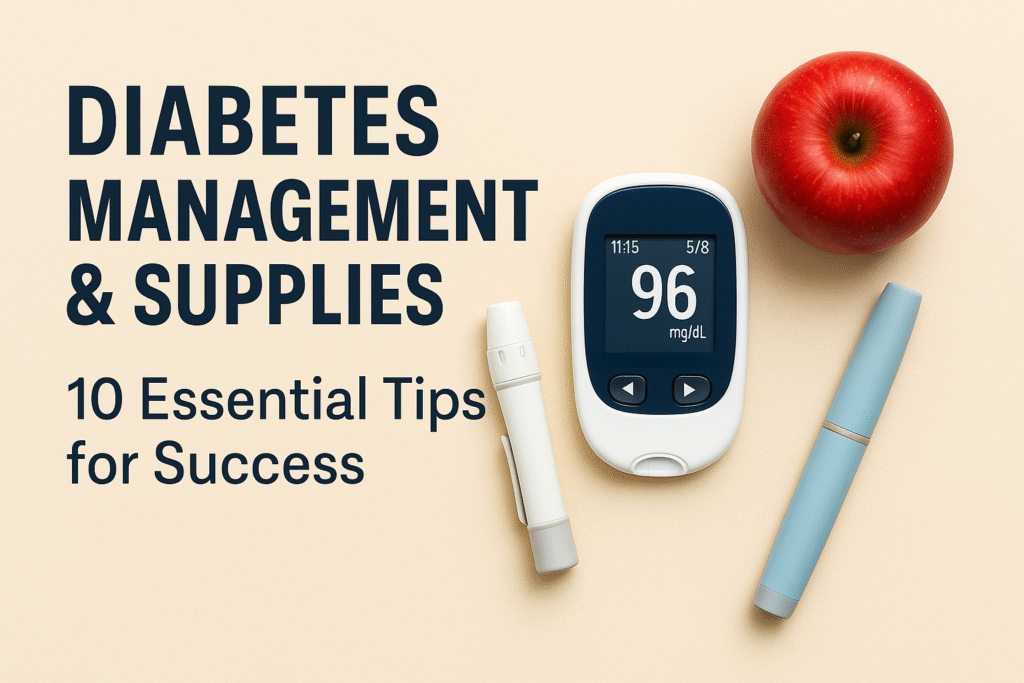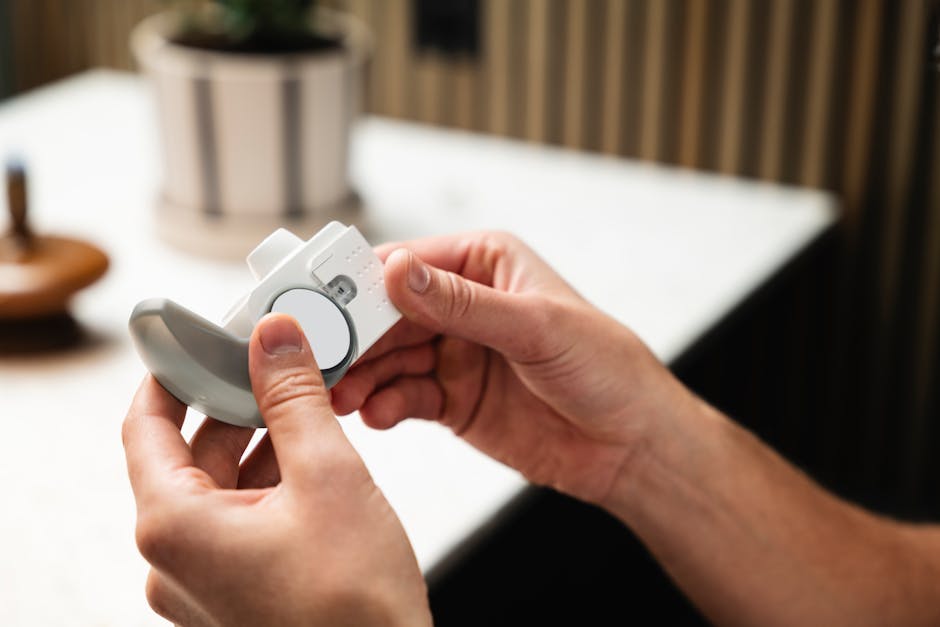Introduction
Definition of Chronic Conditions
Chronic conditions including diabetes management & supplies; refer to long-term health issues that often require ongoing management and care. These conditions can significantly impact daily life and include diabetes, high blood pressure, asthma, and heart disease. For example, someone living with diabetes must constantly monitor their blood sugar levels, adjust their diet, and follow their treatment plan. These conditions not only affect physical health but can also influence emotional well-being.

Significance of Daily Monitoring
Daily monitoring is crucial for individuals with chronic conditions as it helps in:
- Tracking health changes: Recognizing any fluctuations in symptoms can enable timely interventions.
- Preventing complications: Consistent observation can avert severe health crises.
- Improving communication: Sharing precise data with healthcare providers fosters better treatment plans.
By effectively managing these chronic conditions, individuals can regain a sense of control and enhance their quality of life.

Common Chronic Conditions Requiring Daily Monitoring
Diabetes
One of the most prevalent chronic conditions, diabetes demands diligent daily monitoring. Individuals need to track their blood sugar levels consistently, which can involve regular glucose testing and adjusting their insulin intake. For those managing diabetes, even small dietary changes can have a significant impact.
High Blood Pressure
High blood pressure, or hypertension, is another condition requiring daily attention. Regular monitoring can help individuals recognize troubling spikes in their blood pressure, allowing for timely adjustments in medication or lifestyle. Maintaining a log can reveal patterns that physicians can address.
Asthma
For asthma sufferers, daily monitoring involves checking peak flow rates and recognizing early signs of an asthma attack. This proactive approach can ensure they remain prepared with inhalers or other medications.
Heart Disease
Lastly, those with heart disease must regularly monitor their heart rate, blood pressure, and any potential symptoms such as chest pain. Regular check-ins not only help in maintaining better cardiovascular health but also provide peace of mind.
These conditions underscore the importance of constant vigilance in health management.
Importance of Daily Monitoring
Early Detection of Changes
Daily monitoring of chronic conditions empowers individuals to catch subtle changes in their health early on. For example, someone managing asthma may notice minor changes in their breathing patterns before they escalate into a severe attack. Quick detection like this can lead to immediate corrective measures, ultimately enhancing safety.
Managing Medications Effectively
Effective medication management is another crucial aspect of daily monitoring. Keeping track of how medications affect symptoms helps individuals and healthcare providers fine-tune dosages. A personal anecdote would be someone adjusting their diabetes management plan after noticing their blood sugar was consistently high, leading to a successful discussion with their doctor.
Preventing Complications
Preventing complications is perhaps the most significant benefit of daily monitoring. By actively engaging in their health, individuals can avoid acute medical situations. Regularly checking blood pressure or heart rates can prevent dangerous episodes, fostering both a sense of empowerment and peace of mind. By focusing on these crucial aspects, individuals can secure a healthier future.
Tools and Methods for Daily Monitoring
Use of Wearable Devices
With technology evolving rapidly, wearable devices have become invaluable in daily monitoring. Fitness trackers and smartwatches can track heart rate, physical activity, and even blood oxygen levels. Imagine going for a walk and seeing your heart rate on your wrist; it offers real-time insights that can guide lifestyle decisions. Explore top-rated diabetes management supplies!
Paper Journals and Logs
For those who prefer a traditional approach, paper journals and logs remain effective tools. Keeping a daily record of symptoms, meals, and medication can provide a comprehensive view of one’s health. Many people find comfort in the tactile experience of writing; it can also reveal patterns that might be missed when relying solely on digital devices.
Smartphone Apps
Smartphone apps designed for chronic condition management can streamline the monitoring process. These apps often remind users to check their vitals and can store historical data for easy reference. One user shared how such an app transformed their diabetes management, allowing them to connect seamlessly with their doctor.
Smart Health Devices
Lastly, smart health devices like blood pressure monitors and glucose meters bridge technology with personal health. These gadgets often sync with apps to provide an integrated experience. For example, an individual using a connected glucose meter can effortlessly track and analyze their readings over time, paving the way for more informed health decisions.
By utilizing these tools and methods, individuals can execute daily monitoring more effectively and enjoy improved health outcomes.

Creating a Monitoring Routine
Setting Reminders
Establishing a consistent monitoring routine begins with setting reminders. Many smartphone apps feature customizable alerts for medication times or health checks. For example, one anecdote highlights a woman who set her reminders to go off with a gentle vibration, prompting her to check her blood sugar levels, leading to improved management.
Tracking Symptoms and Progress
Tracking symptoms and progress is essential for effective monitoring. Keeping a daily log—whether digital or in a journal—allows individuals to note fluctuations in symptoms or any lifestyle changes that might impact their condition. For instance, noting that stress increases headaches can lead to effective stress management techniques.
Consulting Healthcare Providers
Regular consultations with healthcare providers create a collaborative approach to health management. Discussing tracked symptoms with doctors can lead to tailored treatment plans and adjustments when necessary. One patient shared how reviewing his symptom log during doctor visits made the consultations more productive and insightful.
By integrating reminders, tracking, and professional guidance into a structured routine, individuals can stay on top of their health and feel more empowered in managing chronic conditions.
Challenges in Daily Monitoring
Adherence to Monitoring Schedule
While creating a monitoring routine is beneficial, maintaining adherence to that schedule can be challenging. Life’s unpredictability often disrupts even the best-laid plans. For example, one individual shared struggles in remembering to check their blood pressure during busy mornings. Setting specific times and incorporating reminders can help mitigate this challenge.
Data Privacy and Security
Data privacy and security are also significant concerns, especially with the rise of digital and smart health devices. Individuals may worry about how their health data is stored and used. It’s essential to use trusted platforms and understand privacy settings to protect sensitive information, ensuring peace of mind alongside health management.
Emotional and Mental Impact
Lastly, the emotional and mental toll of daily monitoring can be heavy. Constantly tracking health can lead to anxiety or fatigue for some. One person related how the pressure of always being vigilant made them feel overwhelmed. It’s crucial to practice self-care and seek support from friends or support groups when feeling bogged down.
Navigating these challenges requires patience and support, but the rewards of effective health management can be empowering.
Resources and Support for Managing Chronic Conditions
Support Groups
Finding a support group can be a game-changer for individuals managing chronic conditions. These groups provide not only a sense of community but also valuable experiences shared among members. For instance, one woman described her journey in a diabetes support group, stating that hearing others’ successes and struggles helped her feel less isolated and more empowered in her management.
Telehealth Services
Telehealth services have emerged as a convenient method for ongoing healthcare. Patients can consult with healthcare professionals via video calls, eliminating the need for travel and saving time. Imagine a busy parent being able to quickly check in with their doctor during a lunch break; this flexibility makes it easier to stay on track with health management.
Educational Materials
Access to educational materials is critical in enhancing understanding about chronic conditions. Resources such as pamphlets, online articles, and webinars can provide essential insights into managing illnesses. One user shared how an informative webinar on diabetes management transformed their approach, allowing them to make more informed choices regarding their diet and exercise.
These resources and support systems are vital in building a stronger foundation for managing chronic conditions effectively, helping individuals feel informed, connected, and empowered.
Conclusion
Recap of the Importance of Daily Monitoring
In conclusion, daily monitoring of chronic conditions is more than just a task; it’s a cornerstone of effective health management. By regularly tracking symptoms and using the right tools, individuals can gain valuable insights, detect changes early, and prevent complications. As highlighted throughout this article, whether it’s through wearable devices, smartphone apps, or traditional logs, consistent monitoring enables individuals to maintain control over their health.
Encouragement for Taking Control of Health
Now is the time to take charge of one’s health journey. Engaging with support groups, utilizing telehealth services, and exploring educational materials are all steps that can enhance this journey. Remember, embracing these practices will not only promote better health outcomes but also empower you to live life to the fullest. So, take that first step today—your future self will thank you!